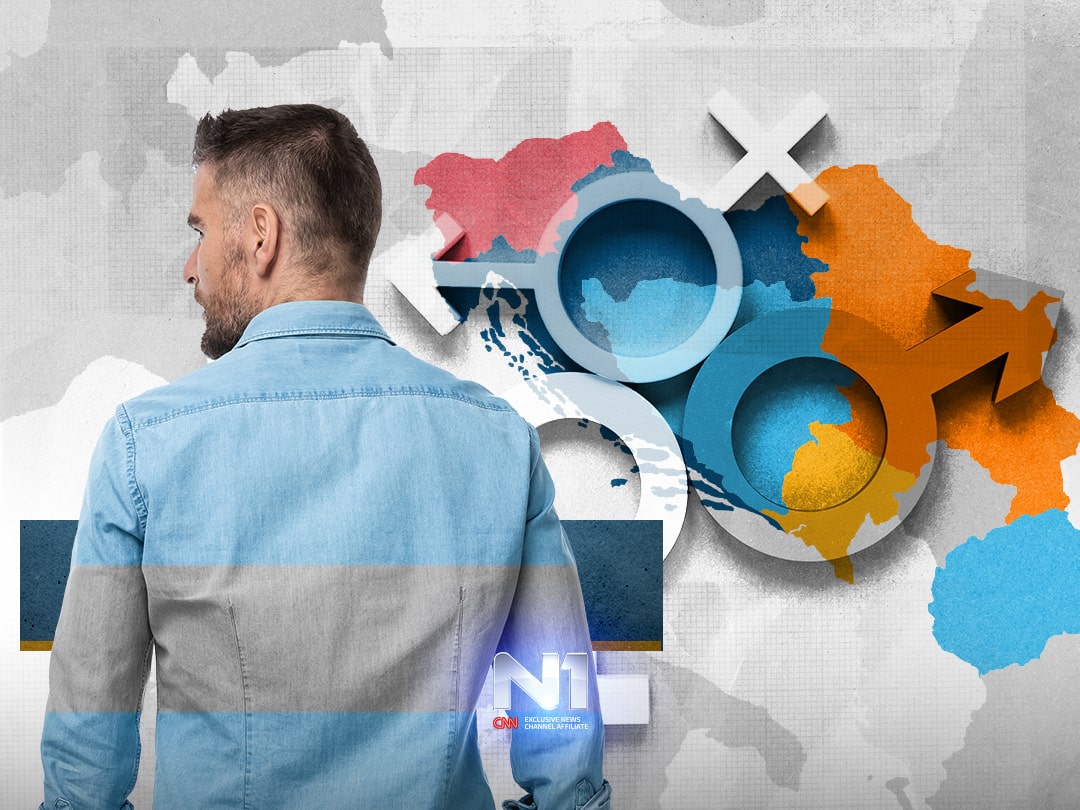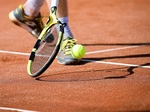
Disturbing news about violence against women, femicide, discrimination, and poor awareness of gender equality in the Western Balkans rings an alarm bell indicating that these countries urgently need to develop better coordination among the civil society actors advocating for gender equality. But what can men, who are the dominant perpetrators of gender-based violence, do for a better tomorrow and greater social emancipation?
The Western Balkans face a dire situation when it comes to gender-based violence and gender inequality.
In Bosnia and Herzegovina (BiH), approximately 47% of women over the age of 15 have experienced some form of violence, including physical, psychological, sexual, or economic violence, according to a study by the Gender Equality Agency of BiH and UN Women. Similar patterns of violence and discrimination can be observed in Serbia and Montenegro. This grim reality calls for a concerted effort from all sectors of society, particularly from men, who must play a pivotal role in challenging and dismantling patriarchal norms and behaviors.
Tomislav Cvitanusic, a marathon runner, triathlete, and mountaineer from Bosnia and Herzegovina, is actively involved in raising social awareness in his country. Over time, he has become increasingly aware of the inequalities between genders. He argues, "This primarily relates to the subordinate position of women in our society, which can be attributed to cultural and traditional norms dictating that a woman's place is at home. Many women still find themselves in difficult situation because they are economically dependent on their partners, who are often abusive, making it impossible for them to leave."
'Gender equality - providing equal opportunities for people regardless of their different needs'
In Serbia, Milan Antonijević, a legal expert and publicist, shares his journey towards understanding and advocating for gender equality. For Milan, gender equality means striving towards and establishing equal social, professional, legal, and all other life opportunities among women, men, and individuals of non-traditional gender identities. His understanding evolved over time, initially based on the experiences of women in his own family and social circle. Through his engagement in the civil sector, Milan realized that the experiences and consequences of inequalities are systemic issues that require a collective effort to be addressed. "Including the provisions for protection against discrimination at an early age helps lay the foundations for equality before prejudices and stereotypes become entrenched," he notes.
Stevan Milivojević, a human rights activist for LGBTI population in Montenegro, highlights the importance of recognizing individual differences and needs to achieve equitable outcomes. He believes that gender equality means striving for equal opportunities while recognizing that different people have different needs. He explains, "For instance, while all individuals should have the right to vote, people with disabilities must have equal opportunities to exercise that right. This includes providing accessible polling stations and materials adapted for those with hearing or vision impairments." Staša Zajović, a well-known feminist activist and founder of Women in Black in Serbia, stresses the importance of collective action and challenging institutional norms. For her, mainstream gender policies are important but insufficient because they do not provide gender justice and protection from all forms of violence. Staša asserts, "Institutional gender equality does not remove the power imbalance between men and women. As an activist, I believe it is necessary to create movements, continuously challenge the state, make demands, and exert pressure."
Could men bring about the change?
Men play a crucial role in the fight for gender equality. Their involvement is not only a moral obligation but also a strategic move to utilize their social influence and power to create meaningful change. Here are several ways that men in the Western Balkans can contribute to advancing gender equality: Educating oneself and others about gender equality and the impact of patriarchal norms is a vital first step. This includes recognizing and challenging sexist language, misogynistic behavior, and gender-based discrimination in everyday interactions. As Tomislav highlights, it is important to speak out loudly about these issues and help improve the situation. Supporting and promoting women's leadership in all spheres, from politics to business to community organizations, is another critical action. Milan underscores the importance of gender-sensitive policies in education and professional settings, stating, "Men must be aware of their privileges and work towards creating equal opportunities for women in various social contexts."
Active participation in gender equality initiatives and movements is crucial for creating lasting change. Staša points out that "it is necessary to create movements, continuously challenge the state, make demands, and exert pressure." This collective action is essential for dismantling systemic inequalities. In the workplace, the men in positions of power should implement and advocate for gender equality policies. These include equal pay, preventing workplace harassment, and promoting work-life balance for all employees. Milan's experience highlights the importance of clear policies and freedoms in promoting gender equality within various settings. Supporting and advocating for laws and policies that promote gender equality and protect against gender-based violence is another significant way in which men can make their contribution. This includes the support for the implementation of current laws and pushing for new legislation where gaps exist. Stevan's work on projects aimed at combating misogynistic hate speech and strengthening legal responses to gender-based violence illustrates the importance of policy advocacy in achieving gender equality.
The path to gender equality in the Western Balkans requires the active involvement of men. By educating themselves, supporting women's leadership, challenging traditional gender norms, participating in gender equality initiatives, promoting equality in the workplace, and engaging in policy advocacy, men can play a significant role in creating a more equitable and just society. As the region continues to grapple with the alarming statistics of violence against women and gender-based discrimination, it is imperative that men step up and become allies in the fight for gender equality. Only through collective action and a commitment to challenging and dismantling patriarchal structures can the Western Balkans move towards a future where all individuals, regardless of gender, have equal opportunities and rights.
This article is written as a result of support for mobility from the Western Balkans Fund for work on the topic Engaging Men in Building Gender Equality in Western Balkans (BiH, Serbia, Montenegro).
Kakvo je tvoje mišljenje o ovome?
Učestvuj u diskusiji ili pročitaj komentare





 Srbija
Srbija
 Hrvatska
Hrvatska
 Slovenija
Slovenija



























































